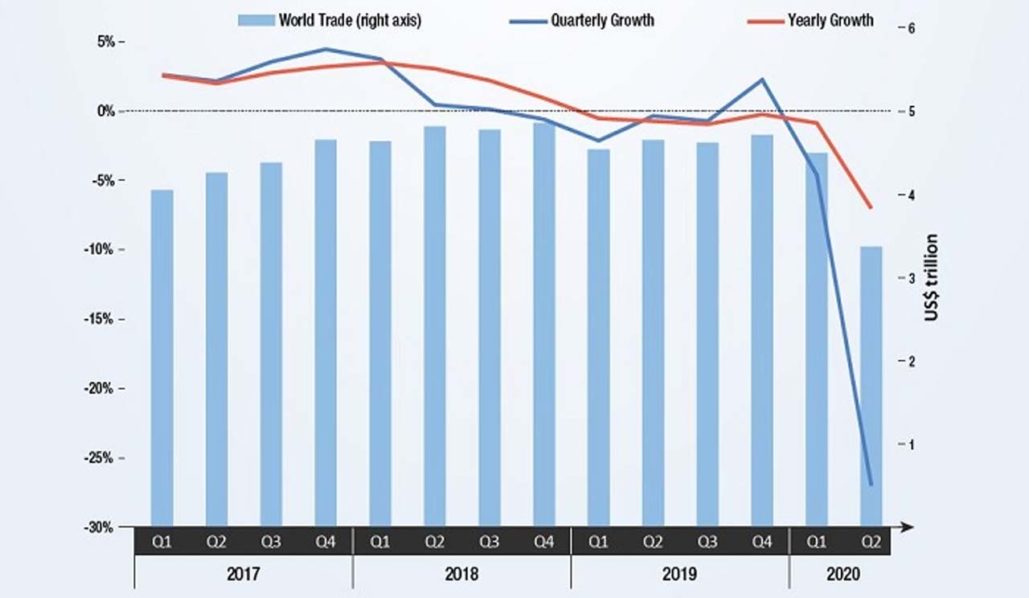 Latest data and projections from the United Nations Conference on Trade and Development (UNCTAD), have shown that international trade in goods is expected to continue its nosedive in the coming months as economies struggle to recover from lockdown measures used to slow the COVID-19 outbreak.
Latest data and projections from the United Nations Conference on Trade and Development (UNCTAD), have shown that international trade in goods is expected to continue its nosedive in the coming months as economies struggle to recover from lockdown measures used to slow the COVID-19 outbreak.
Specifically, the forecasts show a particularly rapid deterioration for developing countries.
Nigeria’s foreign trade volume fell from N10.12trillion in the fourth quarter (Q4) of 2019 to N8.30trillion in Q1 2020, the latest report from the National Bureau of Statistics (NBS), has shown.
NBS attributed the decline in total merchandise to impacts of the coronavirus pandemic, which has been ravaging the world economy.
“For developing countries, while declines in exports are likely driven by reduced demand in destination markets, declines in imports may indicate not only reduced demand but also exchange rate movements, concerns regarding debt and a shortage of foreign currency,” the report says.
Preliminary data for April, according to UNCTAD, suggests the sharpest downturn for South Asia and the Middle East, which could register trade declines of up to 40%. Meanwhile, East Asia and the Pacific regions appear to have fared best, with trade drops remaining in the single digits both in the first quarter of 2020 as well as in April.
China appears to have fared better than other major economies in April, registering 3% growth for exports. But the most recent data indicates that the recovery may be short-lived, as the nation’s imports and exports fell by about 8% in May.
The report shows that economic disruptions wrought by COVID-19 have affected some sectors significantly more than others.
In the first quarter of 2020, textiles and apparel declined by almost 12%, while office machinery and automotive sectors fell by about 8%. In contrast, the value of international trade in the agri-food sector, which has so far been the least volatile, grew by about 2%.
Preliminary data for April indicates further declines in most sectors, with a very sharp contraction in the trade of energy (-40%) and automotive (-50%) products. Significant decreases are also observed in chemicals, machinery and precision instruments, with drops above 10%.
On the other hand, office machinery appears to have rebounded in April, largely because of China’s positive export performance.
“In general, the variance across sectors,” the report says, “has been driven by decreases in demand and disruptions of supply capacity and global value chains due to COVID-19.”
A notable side effect of the COVID-19 pandemic has been the increase in demand for medical goods and equipment, such as ventilators, monitors, thermometers, hand sanitizers, protective masks and garments.
While the international trade of such goods contracted at the onset of the pandemic, it rebounded in February and March and almost doubled in April 2020, as countries scrambled to secure medical and protective equipment.
The flow of imports and exports, the report says, followed the spread of the virus.



